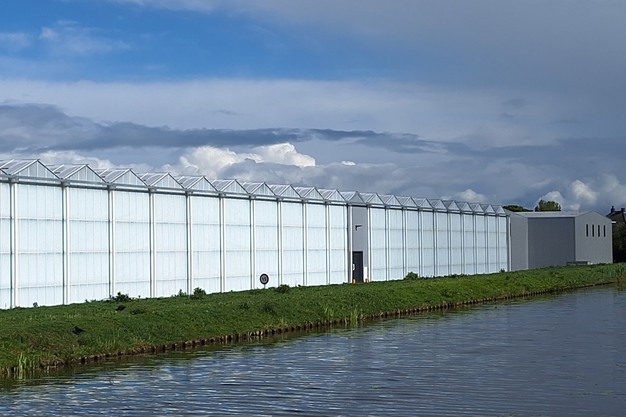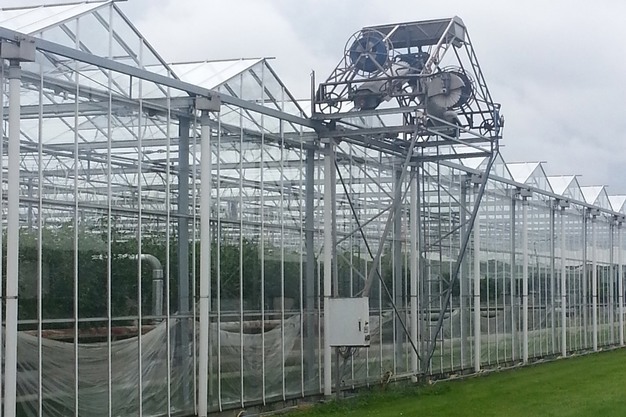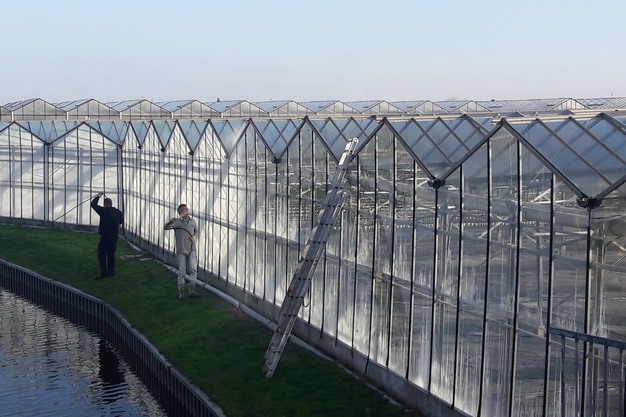Microplastics are tiny plastic fragments measuring less than 5 millimeters. These minuscule particles end up in the environment and accumulate there. They are not biodegradable but rather fragment into smaller pieces over time. "Every day, we all ingest microplastics through food, drink, and air. But do you know how much? And which products contain microplastics? According to the Plastic Soup Foundation website, an adult American male is estimated to ingest around 121,000 plastic particles per year," passionately explains Jaco de Vries. The director of Houweling Horticulture continues: "Initial studies indicate that this intake of microplastics could have harmful effects on the human body."

The transition period for EU legislation ends in 2028
"Sustainability and health are important reasons for Houweling Horticulture to focus on developing microplastic-free products. Additionally, as a horticultural sector, we are expected to grow sustainably and environmentally friendly. There are also requirements imposed by legislation. The United Nations has established the Sustainable Development Goals (SDGs), and the EU has formulated legislation concerning the sale of consciously added microplastics. The SDGs aim for 2030, and the EU has an even shorter horizon. The new measures are already incorporated into European legislation REACH and came into effect on October 15, 2023. The horticultural sector has a short transition period to comply with these measures, namely 2028. If we, as the Dutch horticultural sector, want to maintain our importance and position, we need to proactively respond to this. It's a must. There's no choice anymore."

A development time of 10 years for a distinctive, sustainable, liquid shading agent
"In the product category coating and shading agents, until recently, there were no products available on the market that could meet these desires and requirements," adds Ronald de Vreede. De Vreede is a product manager at Houweling Horticulture with over 20 years of experience in this product group. "Over 100 years ago, it was Marc Houweling's grandfather who discovered that spraying chalk on the flat greenhouse roofs provided protection and cooling. He introduced the shading agent in powder form to the market, further developed the product, and conquered the national and international markets. About 10 years ago, there was a desire within Houweling to develop a sustainable, liquid shading agent that would be distinctive compared to existing products on the market."

A microplastic-free shading agent that can be removed without chemical means
"After years of development, testing, and refining, we have finally developed a sustainable liquid shading agent that is even completely free of microplastics. Naturally, we are extremely proud of this." Bright Eco-Coating protects crops from heat and sunlight and can be safely used during the cultivation of any crop, particularly organic crops. "This is because the product can be removed from the greenhouse roof in an environmentally responsible manner. It wears away over time due to wind and rain, it can be brushed off, or removed with Bright Eco Cleaner. The coating remains on the greenhouse roof for at least 90 days. We introduced Bright Eco-Coating at GreenTech Amsterdam in 2023 to the general public. It is the first and only liquid coating or shading agent that is 100% microplastic-free, 100% biobased, and therefore 100% biodegradable, according to OECD 301F standards. This allows Bright Eco-Coating to be removed from any greenhouse surface without chemical cleaning agents."
For more information:
Ronald de Vreede
Product Manager
Houweling Horticulture
+31 (0)6 52 40 38 13
[email protected]
